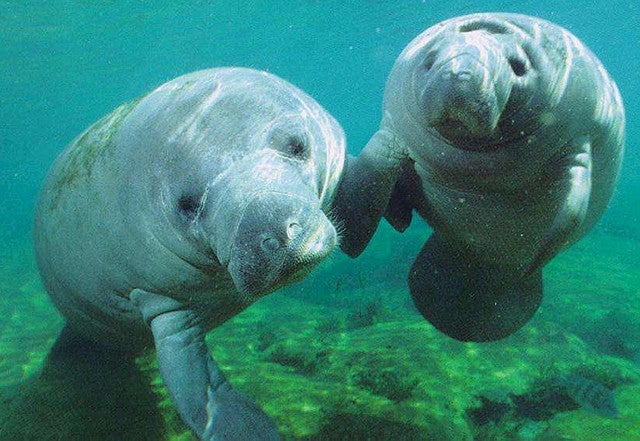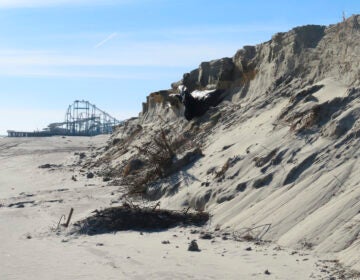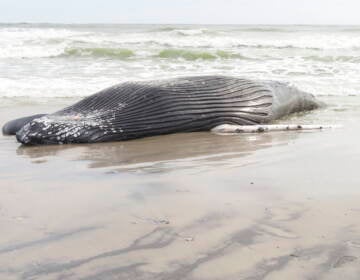Marine experts investigate manatee death in N.J.
Officials on Tuesday were trying to determine what caused the death of a manatee in southern New Jersey.

Manatee file photo. (Image: flickkerphotos via Flickr)
Officials on Tuesday were trying to determine what caused the death of a manatee in southern New Jersey.
The 11-foot male was found along the Delaware Bay in Middle Township in Cape May County on Sunday. Manatees — friendly, mostly herbivorous marine mammals, also known as “sea cows” — are usually are found in Florida’s warmer coastal waters.
“Generally with these guys, especially up in this area, if we find them deceased, it’s somehow associated with the cold water,” Jay Pagel of the New Jersey-based Marine Mammal Stranding Center told WCAU-TV. “It’s quite possible this could be related to climate change,” Pagel said.
The center suspects the manatee had been dead for at least a month. The Rutgers Cape Shore Laboratory is helping with the investigation.
“Typically we just work with oysters and shellfish and we don’t expect anything this large on the beach,” said lab official Sam Ratcliff.
During the summer of 2015, manatees were spotted in the Delaware River, Toms River, Barnegat Bay, and in the Great Bay, which is “one of the least-disturbed marine wetlands habitats in the northeastern United States.”
The marine mammals serve as a barometer on the health of marine ecosystems, according to Marine Science Today.
“Manatees are the proverbial ‘canaries in the mineshaft,’ as they serve as indicators of their environment and may reflect the overall health of marine ecosystems,” Alonso Aguirre, executive director of the Smithsonian-Mason School of Conservation, told the publication.
While rare in Mid-Atlantic waters but not without precedent during the summer, manatees are prone to serious injury because of their slow-moving, curious nature, marine mammal experts say.
The marine mammal is protected by the federal Marine Mammal Protection Act of 1972 and the Endangered Species Act of 1973.
The Associated Press contributed to this report.
WHYY is your source for fact-based, in-depth journalism and information. As a nonprofit organization, we rely on financial support from readers like you. Please give today.




